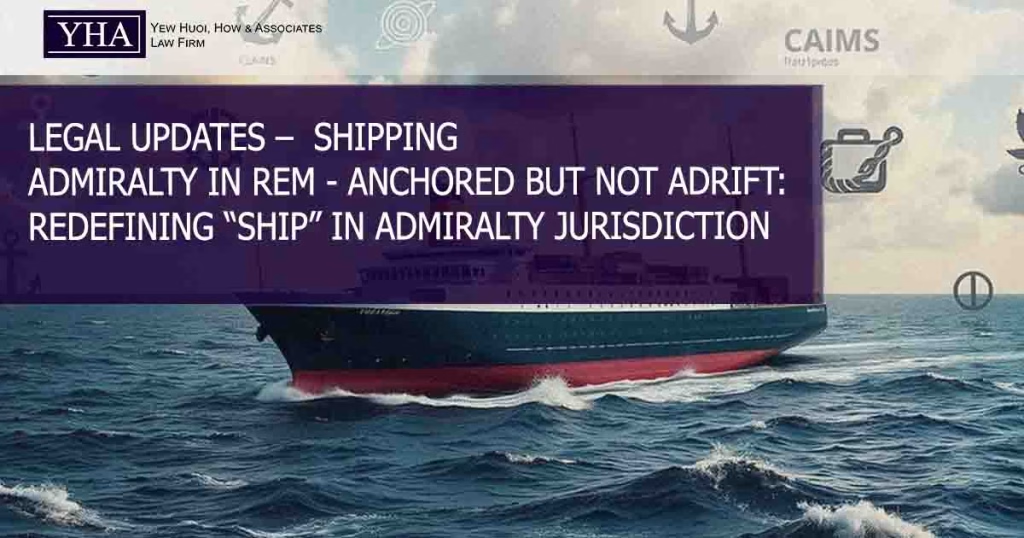1. Summary and Facts
In Vallianz Shipbuilding & Engineering v Owner of the Vessel “Eco Spark” [2025] 1 Lloyd’s Rep 195, the Singapore High Court examined the classification of a vessel named Eco Spark, a steel dumb barge converted into a stationary floating fish farm. The vessel lacked propulsion, navigational equipment, and was anchored to the seabed by spud legs. Despite these modifications and its current stationary status, the primary legal question was whether it qualified as a “ship” under the High Court (Admiralty Jurisdiction) Act 1961 (“HCAJA”).
2. Legal issues
i. The central legal issue was determining the definition of a “ship” under Section 2 of the HCAJA. Specifically, whether the Eco Spark, in its converted and stationary condition, retained its character as a ship capable of invoking the court’s admiralty jurisdiction, or if its conversion into a non-navigational structure negated such status.
3. Court Findings
• The Singapore High Court held that Eco Spark was still a “ship” as defined by the HCAJA. The Court emphasized that navigability and capability, rather than actual usage or frequency of navigation, were key determinants. Important factors included:
i. Capability and design for navigation.
ii. Stability, seaworthiness, and capacity to handle maritime perils.
iii. Status of registration and classification with flag states.
iv. The stationary nature alone does not eliminate navigability.
• The defendant’s application to strike out the action and to set aside the warrant of arrest was consequently dismissed. Nevertheless, due to an existing arbitration clause, the court stayed the proceedings in favour of arbitration, maintaining the arrest of Eco Spark as security for potential arbitration awards.
4. Practical Implications
This judgment significantly broadens the understanding of “ship” within admiralty jurisdiction, emphasizing navigational capability rather than actual current use or condition. The decision provides clarity and guidance for legal practitioners and maritime businesses, ensuring that vessels converted to stationary purposes or non-traditional maritime use may still fall under admiralty jurisdiction, preserving crucial legal remedies and securities.
In Malaysia like the United Kingdom, the definition of a “ship” within admiralty jurisdiction is guided by the Senior Courts Act 1981, which grants the High Court authority over various maritime matters, including disputes involving ships. The Act does not provide an explicit definition of “ship”, leading UK courts to rely on common law principles and case law to interpret the term.
UK courts have adopted a functional approach, focusing on a vessel’s design and capability for navigation, rather than its current use or operational status. This approach aligns with the reasoning in the Singapore High Court’s decision in the “Eco Spark” case, suggesting that a vessel originally built for navigation retains its status as a ship under admiralty law, even if it has been repurposed for stationary use.

